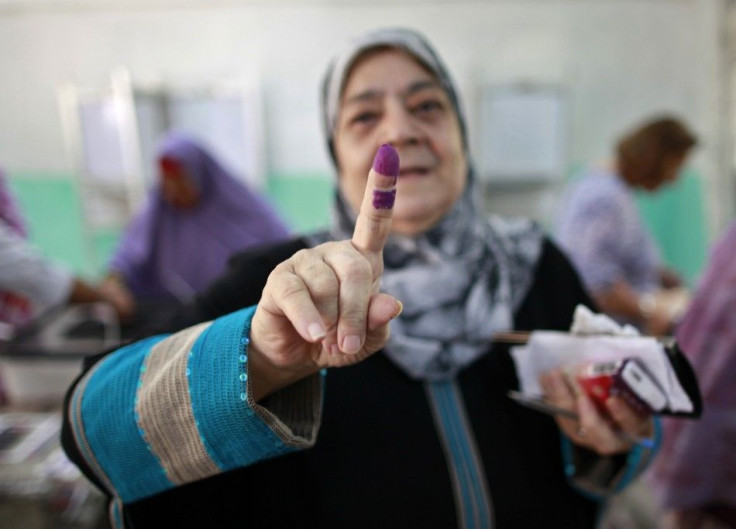Muslim Brotherhood Wins Egypt Election, But Does It Matter?
ANALYSIS

Completing its sweep of post-revolution politics in Egypt, the Muslim Brotherhood and its candidate Muhammad Mursi declared themselves the victors of this weekend's presidential elections. With a reported 52 percent of the vote, Mursi beat former Air Force commander (and link to deposed president Hosni Mubarak) Ahmed Shafiq to become Egypt's first democratically elected civilian ruler in 60 years.
However, a deft political move by the ruling Supreme Council of the Armed Forces, or SCAF, led by Field Marshal Hussein Tantawi, has all but annulled the significance of the elections.
Last week, the SCAF dissolved the lower house of parliament and the constitutional draft committee, meaning that the powers of the new president wouldn't be established until after the elections. The military seemingly completed its soft coup on Sunday when it gave itself wide ranging powers through a constitutional declaration. The military still says that it will hand over power to the new president on July 1, but its latest move assures that it will maintain control over the judiciary and the composition of Egypt's eventual constitution.
Mursi will be a president with only limited, temporary constitutional powers, facing off against a military who's quite capable of vetoing whatever he does by means administrative, judicial and now legislative, according to the Arabist's Steve Negus.
He will have very little of either moral or institutional power to shape the drafting of the constitution, and he will live under the Sword of Damocles of another court ruling.
One of the most important new amendments is Article 53/2, which gives the military the same anti-opposition privileges that Mubarak once enjoyed. Should Egyptians take to the streets to protest, which will surely happen, or try to start a new revolution, which they've threatened to do, the SCAF will be allowed to maintain security and defend public properties and permit the army to use force [to] arrest or detain protesters.
The supplementary constitutional declaration really does complete the coup in many obvious ways -- basically returning martial law, making the military unaccountable and grabbing back oversight of the political system for the military just weeks before the scheduled end of military rule, explained Nathan Brown, a political science professor at George Washington's Elliot School of International Affairs.
The SCAF, as dictated in Article 60B, can also dissolve and then reform the constitutional draft committee at any time. Later articles do give the president and prime minister the ability to challenge any future constitutional amendments that conflict with the revolution's goals and its main principles, but the final decision on a law's constitutionality will be left to the military-backed High Constitutional Court.
For the most part, Egyptians were unenthusiastic about the choice between an Islamist and a former Mubarak confidant, especially now that the choice doesn't matter much anyway. Overall, less than half of Egypt's eligible voters turned out over the weekend. Notably, voter turnout was higher in rural areas this weekend than during the first round, while it decreased in the more politically engaged cites of Cairo and Alexandria.
Shafiq has yet to concede that Mursi won the election, claiming that the Brotherhood engaged in fraud and vote-rigging. While not all the votes had been tallied in Cairo by Monday morning, Shafiq was still trailing Mursi by more than a million votes and Brotherhood supporters celebrated their win in Tahrir Square.
The official results will be announced by the SCAF on Thursday.
© Copyright IBTimes 2025. All rights reserved.





















